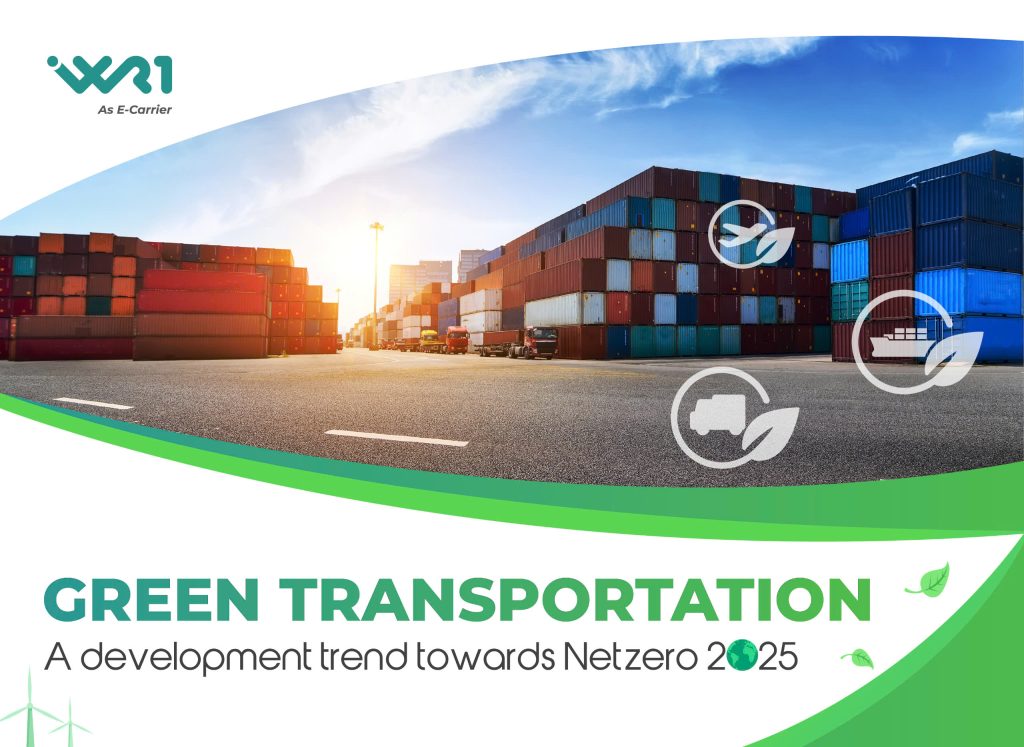As climate change becomes increasingly urgent, the transition to a green economy is imperative, and green transportation is playing a crucial role in this revolution.

At the workshop “The Role of Green Transportation and Green Logistics in the Contemporary Global Trend, Green Growth and Sustainable Development towards Net Zero 2050” held on October 15th, organized by the Ministry of Natural Resources and Environment and its partners, significant contributions were made to concretize the Net-zero target by 2050, as well as proposing solutions to promote the development of green transportation in Vietnam.
Legal framework and solutions for sustainable development
According to Mr. Nguyen Viet Dung, Director of the Center for Communication on Natural Resources and Environment, green logistics is understood as logistics activities that aim for sustainability, environmental friendliness, and minimizing negative impacts on the environment, including transportation services, handling and storage of materials, inventory control, warehousing, packaging, and decisions on the location of goods distribution.
Currently, Vietnam has over 40,000 businesses operating in the logistics sector and is the leading country in ASEAN in terms of the number of businesses operating logistics services, licensed by the US Maritime Administration. According to the Agility 2022 ranking, Vietnam ranks 11th among the top 50 emerging logistics markets globally.
Statistics show that domestic transportation accounts for 50% of greenhouse gas emissions. Therefore, orienting green logistics towards sustainable, environmentally friendly, and protective goals is a mandatory direction.
Roadmap to green transition towards 2050
Dr. Le Ngoc Cau, Deputy Director of the Institute of Meteorology, Hydrology, and Climate Change, stated that the Ministry of Transport has a clear roadmap for green transition towards the Net-zero target by 2050.
From now until 2030, the focus will be on shifting the use of electricity to green energy in transportation sectors. By 2050, transportation modes will be developed rationally, and the complete transition of all vehicles, equipment, and transportation infrastructure to using electricity and green energy will be strongly promoted.
However, persuading people to proactively switch to public transportation in general and green private transportation in particular still faces many difficulties in a context where there are not many attractive options. For transportation businesses, a large-scale vehicle transition requires significant financial investment, but financial support mechanisms are limited.
Current policies on green transition are not clear; there is a lack of human resources to operate new systems and technologies. Limited green finance for businesses to transition to green is a barrier that has left many businesses struggling.
Businesses expect relevant ministries and agencies to soon develop specific green criteria and standards for each sector to have a basis for effective application. In addition, businesses also need specialized human resources and separate financial mechanisms to serve the green transition.

Green transportation is an inevitable trend in sustainable development. Vietnam has been taking the first steps in promoting the development of green transportation. However, to achieve the Net-zero target by 2050, we need to make even stronger efforts.



 Tiếng Việt
Tiếng Việt

